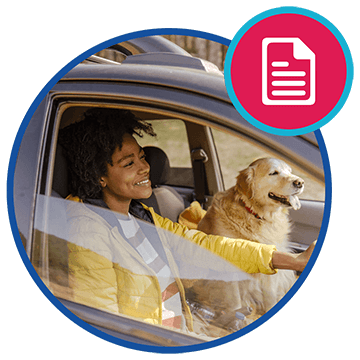There are many options for individuals looking to get rid of their old car. You can list the vehicle on Kijiji, Craigslist or other automotive classifieds and entertain emails and calls from different people. You could also put up a sign showing “for sale” on the window of the car you want to sell/trade in and hope for a potential buyer to spot it. Or you may consider trading in your car to a car dealer and getting a new car.
Trade-ins are somewhat fast and considered the easiest way of ridding yourself of your old car – which is why the process is so common. Nonetheless, some car owners prefer searching out buyers themselves rather than dealing with a car dealer. However, private car sales are not always as easy as they seem, so we implore you to learn what you stand to benefit (or lose) when you trade in your car. Helping you make a more informed decision.
Pros of Trade-ins
Before diving into the private car sale process, read and understand ways trade-ins can be of assistance in helping you get rid of your old vehicle.
It’s Just You and the Dealer On Your Own
When you hop into a trade-in process, you have the dealer to deal with alone. The dealer handles the stress, transactions, test drives, purchase and every other thing related to selling off a car. All you need do is appear, strike a deal with the car dealership, and you’re a few moments away from riding your new car. While selling your car can bring more gains, trading in can be a better option for people who lack the time to market their old car and may not be able to deal with the stress that comes along with it.
Trade-ins Are Fast and Convenient
It takes time and effort to make private sales a success. Why? It involves advertising the car you want to sell, meeting with prospective buyers, scheduling a test drive, transferring ownership of the vehicle to the new buyer, etc. Most times, it takes weeks or even months to land a buyer. Meanwhile, trade-ins take a day or two.
You Get Your New Ride at a Reduced Price
If your old car is fully owned by you, the car dealership may apply your trade-in fund to the new car you want to purchase. For instance, if you buy a vehicle for $30,000 and the dealership offers you $8,000 for your trade-in, you will only need a car loan of $22,000. And because the dealer shredded several thousand bucks off the final value of your new ride, you tend to pay less interest and tax.
Cons of Trade-ins
Trade-ins don’t always go that smoothly. Here are the downfalls of trade-ins. We hope you evaluate your options and pick the best fit for you.
You May Get Paid Less for the Value of Your Car
Trading in your vehicle may be convenient and simple, but most often, the offer proposed by car dealerships are much less than what you may gain when you sell it privately.
For instance, the value of a 2009 Toyota Camry XLE with 50,000 kilometres and in good condition can be privately sold for up to $2,000+ in difference, compared to a dealership.
Your Options of Where You Can Get a New Car Are Limited
When your car is evaluated by a dealership and an agreement is reached to buy your car, you’re obliged to buy your new car from the same dealership. If the car dealership does not have the vehicle of your choice in stock, you may not be able to trade in your old car. At the moment, there is no provision that lets you trade in your old car at one car dealership and buy your new car from a different dealership. And if that was the case, you likely wouldn’t get a great deal anyway since the car dealership isn’t making any money on the sale.
How to Win the Trade-in Game
When trading in your car, avoid doing these, as it is considered a major mistake others make when trading in:
Fixing the Car
- Most individuals tend to repair their old cars with the assumption it would help boost the value of the car. Some roll in a new set of tires before going to a dealership. Well, this seldom works. But the truth is, these dealers can fix defects on cars and even add new tires at a much lower price.
Overbilling The Car’s Value
- Some people are emotionally involved with their cars and tend to assume their value is higher than it is in actuality. They set their mind on the highest-priced estimate by an appraisal site and consider it fixed mentally. Some car dealers may offer you more or less than whatever is estimated by an appraisal site, so it is best to negotiate your way through this rather than fight your way through.
Hiding Details and Relevant Info from Dealerships is Another Mistake Some Shoppers Do. It Always Comes Out in the End
At the end of the day, dealerships want to do business with you, and they need people to come to buy their cars. For this, they are willing and ready to entertain you in negotiating your trade-in.
As expected, some dealerships will try to underprice your trade-in but if you familiarize yourself with the trade-in process, you’re well on your way to get the most out of your next deal.



